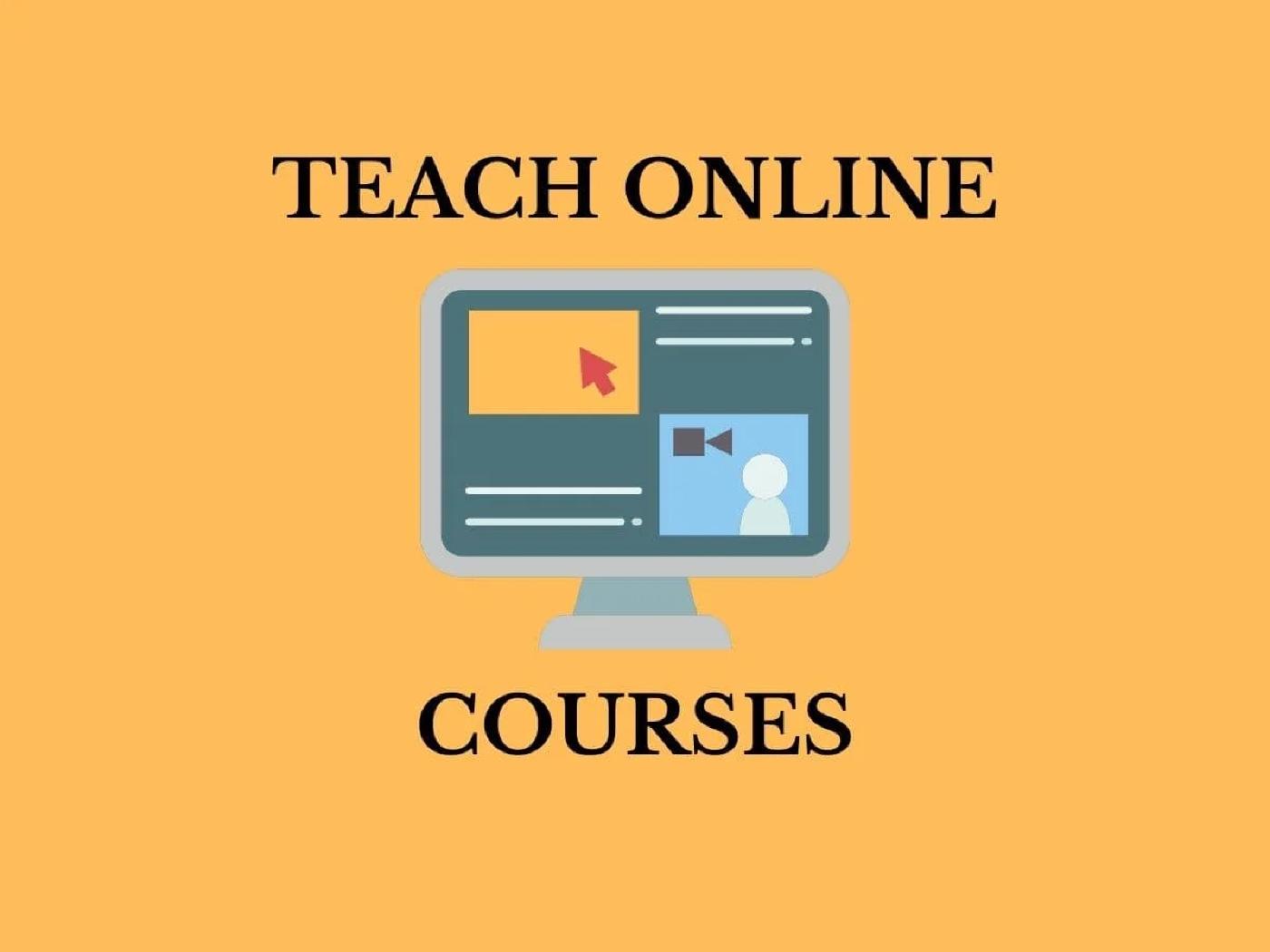How to Earn Teaching Online Courses
Teaching online courses has become not only a viable option but also a preferred method for many educators seeking to reach a broader audience and adapt to the digital age. However, transitioning from traditional classroom teaching to the online environment requires a distinct set of skills and strategies. In this comprehensive guide, we will investigate the essential steps and best practices to make money teaching online courses.
What Are Online Courses
Online courses refer to educational programs delivered entirely or primarily through the internet. They encompass a wide range of subjects and formats, including video lectures, interactive modules, discussion forums, quizzes, and assignments. Unlike traditional classroom-based learning, online courses provide flexibility and convenience, allowing students to access course materials and participate in activities from anywhere with an internet connection. Read our in depth article on internet opportunities!
Types of Online Courses
- Massive Open Online Courses (MOOCs): MOOCs are large-scale online courses that are open to anyone with internet access. They typically feature video lectures, interactive quizzes, and discussion forums, and are offered by universities, colleges, and online learning platforms.
- Specialized Skill-Based Courses: These courses focus on developing specific skills or competencies in areas such as coding, digital marketing, graphic design, language proficiency, and project management.
- Academic Courses and Degrees: Many accredited universities and colleges offer online versions of their degree programs, allowing students to earn certificates, diplomas, bachelor's, master's, and even doctoral degrees entirely online. These programs cover a wide range of disciplines, including business, healthcare, education, and technology.
- Professional Development Courses: Professional development courses are geared towards enhancing skills and knowledge in a particular profession or industry. They may include topics such as leadership development, negotiation skills, financial management, and customer service training.
Key Features of Online Courses
The concept of online learning traces its roots back to the early days of the internet. In the 1990s, universities and educational institutions began experimenting with delivering course content online, laying the groundwork for the development of modern online learning platforms. Over the years, advances in technology, coupled with growing demand for flexible education options, have propelled the rapid expansion of online courses across diverse disciplines and industries.
Post that you might enjoy:
Learn how to earn money on Udemy .
Flexibility and Convenience
One of the primary benefits of online courses is the flexibility they offer. Students can learn at their own pace, choosing when and where to engage with course materials based on their schedules and preferences. This flexibility makes online learning particularly appealing to working professionals, parents, and individuals with busy lifestyles.
Accessibility
Online courses break down geographical barriers, allowing students from around the world to access high-quality education regardless of their location. This accessibility democratizes learning and opens up opportunities for individuals who may not have access to traditional educational resources.
Diverse Learning Formats
Online courses employ a variety of multimedia elements to deliver engaging and interactive learning experiences. Video lectures, animations, simulations, and virtual labs are just a few examples of the innovative tools used to enhance comprehension and retention of course content.
Self-Paced Learning
Unlike traditional classroom settings with fixed schedules, online courses often adopt a self-paced learning approach. This means that students can progress through the material at their own speed, taking the time they need to fully grasp complex concepts before moving on to the next lesson.
Access to Expert Instructors
Many online courses are taught by subject matter experts and industry professionals, providing students with valuable insights and practical knowledge that can be applied in real-world scenarios. The ability to learn directly from experts in the field adds depth and credibility to the learning experience.
How to Make Money Teaching Online Courses
The first step in making money through online courses is choosing a profitable niche. It's crucial to select a topic that aligns with your expertise and interests but also has a high demand in the market. Conduct thorough market research to identify trends and gaps. Tools like Google Trends, Udemy's marketplace insights, and keyword research tools can help determine what learners are seeking. However, before you monetize your online course, you must learn how to create an online course .
Create Engaging Content
Once you've selected your niche, the next step is creating engaging and valuable content. High-quality content is the cornerstone of a successful online course. Here are some key considerations:
Break Down Course Structure
A well-structured course is essential for student engagement. Break down your content into manageable modules or lessons, each focusing on a specific aspect of the subject. This makes it easier for students to follow along and retain information.
Multimedia Elements
Incorporate multimedia elements such as videos, slideshows, quizzes, and interactive assignments. These elements not only make the course more engaging but also cater to different learning styles. Ensure your videos are professionally edited, with clear audio and visuals.
Supplementary Materials
Provide supplementary materials like PDFs, templates, and additional resources. These materials can enhance the learning experience and offer added value to your students.
Price Your Course
Determining the right price for your course can be challenging. You need to balance affordability with the value you offer. Consider the following factors:
Utlize Market Research for Your Course
Analyze the pricing of similar courses in your niche. This can give you a benchmark for setting your price. However, don't undervalue your course; high-quality, comprehensive courses can command higher prices.
Pricing Tiers
Offer different pricing tiers to cater to a wider audience. For instance, you can have a basic tier with essential content and a premium tier with additional resources and one-on-one coaching.
Discounts and Promotions
Use discounts and promotions strategically to attract more students. Limited-time offers, early bird discounts, and seasonal sales can create a sense of urgency and boost enrollment.
Define Course Objectives and Learning Outcomes
Clear course objectives and learning outcomes provide direction and focus for both instructors and students. Begin by defining what you want your students to achieve by the end of the course. Break down these objectives into measurable learning outcomes that outline the knowledge and skills students will gain. Aligning course content and assessments with these outcomes ensures that students stay on track and achieve meaningful learning outcomes.
Promote Accessibility and Inclusivity
Inclusivity and accessibility are paramount in online courses to ensure that all students have equal opportunities to learn and succeed. Design course materials with accessibility in mind, incorporating features such as alt text for images, closed captions for videos, and accessible navigation options. Provide multiple means of representation, expression, and engagement to accommodate diverse learning styles and preferences. Foster a culture of respect and inclusivity where all students feel valued and supported.
Choose the Right Online Course
Discovering the best online course platforms is essential for those seeking to expand their knowledge and skills. Here are some factors to consider when choosing an online course:
- Learning Objectives: Clearly define your learning goals and objectives to identify courses that align with your interests and career aspirations.
- Accreditation and Credentials: Research the credentials of the institution or organization offering the course to ensure that it meets industry standards and is recognized by employers and academic institutions.
- Course Content and Structure: Evaluate the curriculum, course materials, and teaching methodologies to determine if they are comprehensive, engaging, and relevant to your learning needs.
- Instructor Expertise: Look for courses taught by instructors who possess relevant expertise, credentials, and experience in the subject matter.
- Reviews and Recommendations: Seek feedback from past students and read reviews to gauge the quality and effectiveness of the course. Recommendations from peers and industry professionals can also help guide your decision.
Conclusion
Online courses have revolutionized the way we learn, offering unprecedented access to education and training opportunities that transcend geographical boundaries and time constraints. Whether you're looking to acquire new skills, advance your career, or pursue a lifelong passion, online courses provide a flexible and accessible pathway to personal and professional development. By harnessing the power of technology and innovation, online learning continues to shape the future of education, empowering individuals to unlock their full potential and achieve their learning goals.
Related Posts
Highest Paid Bloggers
In the dynamic world of blogging, a select few have risen to the top, turning their passion for writing into lucrative careers. This article delves into the lives and earnings of the highest-paid bloggers, explores the various monetization methods they employ, and provides insights into how they transformed their blogs into successful businesses.
Read more39 Ways to Earn Money in 60 Minutes
In today's digital age, there are numerous ways to earn money online quickly. You can earn money selling stock photos, renting out your driveway, participating in focus groups and more. Each method is designed to be practical and easy to implement, making it perfect for anyone looking to boost their income in a short amount of time.
Read moreHow to Buy Domain Names
In the digital era, selecting the right platform for purchasing domain names is a critical step in building a strong online presence. The decision impacts not only the ease of managing your domain but also the level of support and features you receive.
Read more


